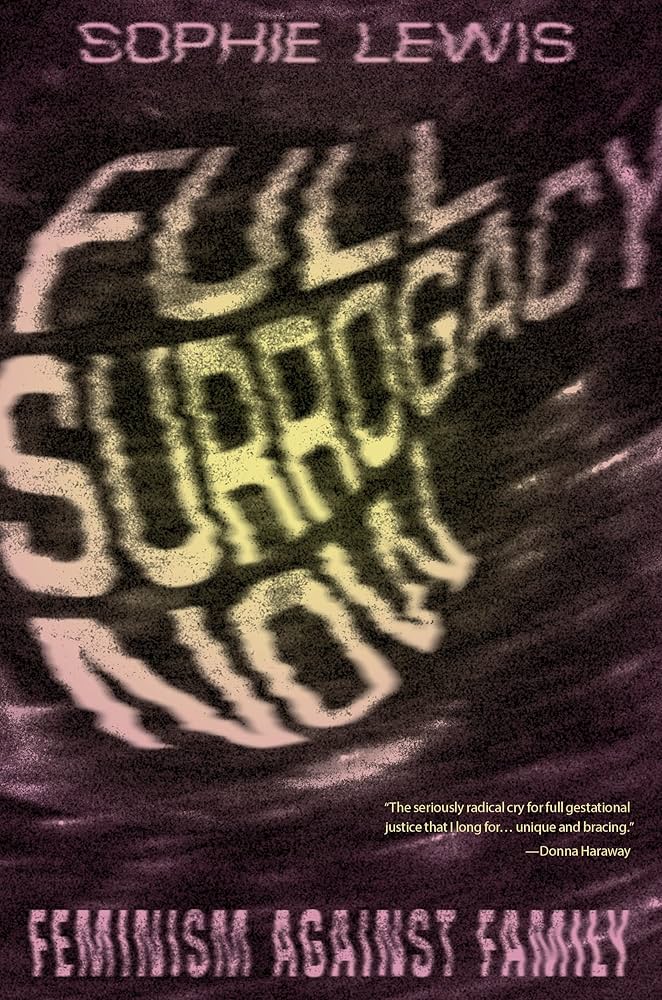ralentina reviewed Full Surrogacy Now by Sophie Anne Lewis
For the collectivisation of babymaking
4 stars
Commercial surrogacy is not a radical, qualitative change in modes of reproduction, since children are already treated to some extent as commodities and, crucially reproductive labour is already unfairly distributed, among genders, classes, races and geographies. Two implications follows: first, commercial surrogacy is wrong only in the sense that is an acute manifestation of broader problems; second, we should treat surrogacy as work, e.g. alienated labour: "I am sympathetic to the impulse, in that the advancing frontier of commodification elicits, in so many of us, a form of recoil that feels almost beyond words. I think I get it. We refuse the concept that the most precious things should be for sale, as though that will change the reality that—exploitatively, yet consensually—they are".
Where I felt the book falls short, or maybe just irritates me, is in the righteous take down of diverging positions, especially since it comes from a self-defined utopian manifesto that can allow itself to smooth over practical difficulties within its vision and tensions or contradictions within its argument. Lewis attacks liberal feminists for its blindness to class issues in the surrogacy business model (rightly!), attacks what she defines as surrogacy-exclusionary feminism (without really giving a satisfying account of their arguments which may not be the point of this particular book but would have been interesting). And finally, she attacks those who attacks the customers of surrogacy as moralist, while at the same time most of the book present those same customers as having drunk the koolaid of reproductional capitalism and reaping the advantages of their class privilege. So, basically, 'they' are all wrong, regardless of where they stand on this issue; even if Lewis agrees with them, she charges them of thinking the right thing of the wrong reasons. She attacks attacks attacks without conceding any ground, any area where her vision or arguments may be prone to appropriation or be weak or harmful, which is only possible because both vision and argument are intentionally vague. Ultimately, the reflection around surrogacy becomes a basis to call for a rethinking of family, again, on similar lines as Haraway: "For if babies were universally thought of as anybody and everybody’s responsibility, “belonging” to nobody, surrogacy would generate no profits. Would it even be “surrogacy” at this point? Wouldn’t the question then simply be: how can babymaking best be distributed and made to realize collective needs and desires?".

